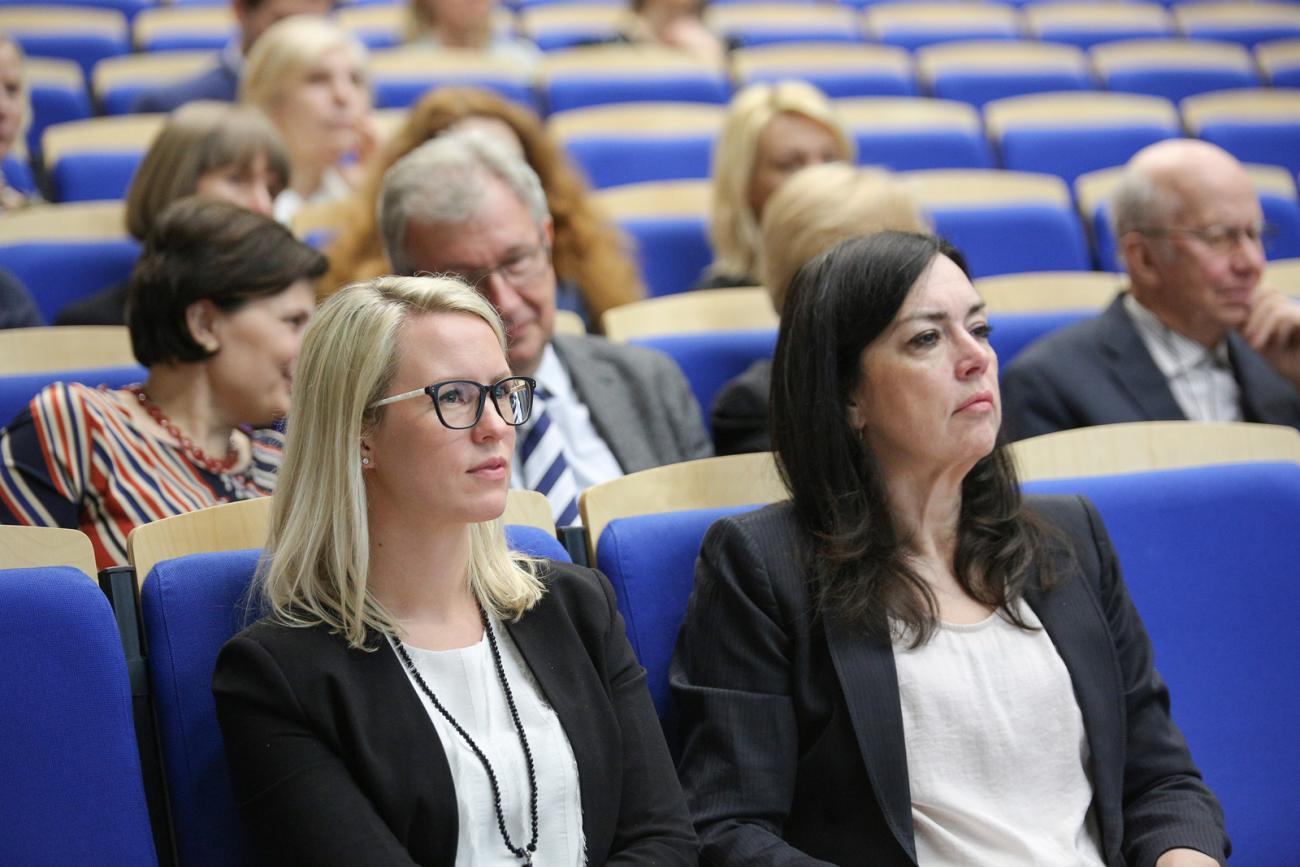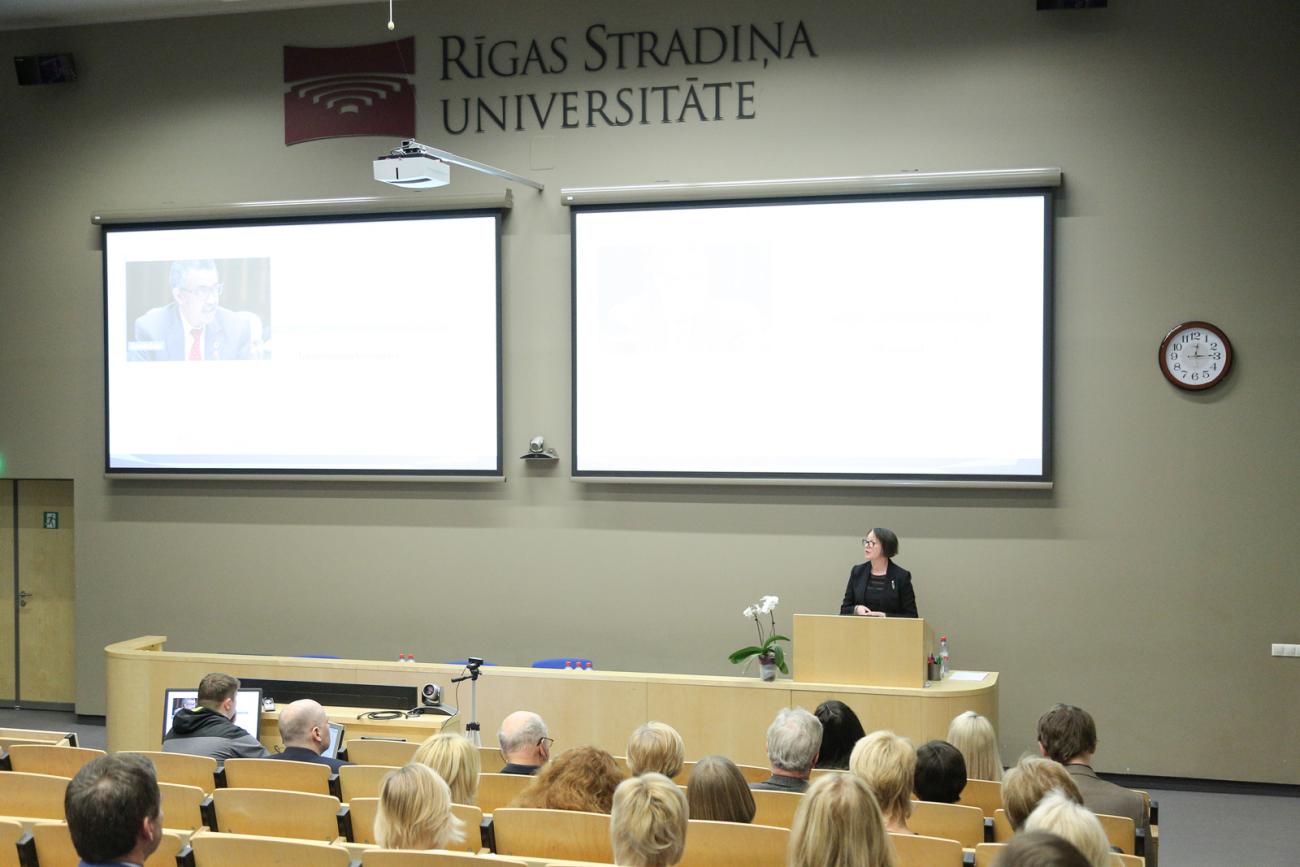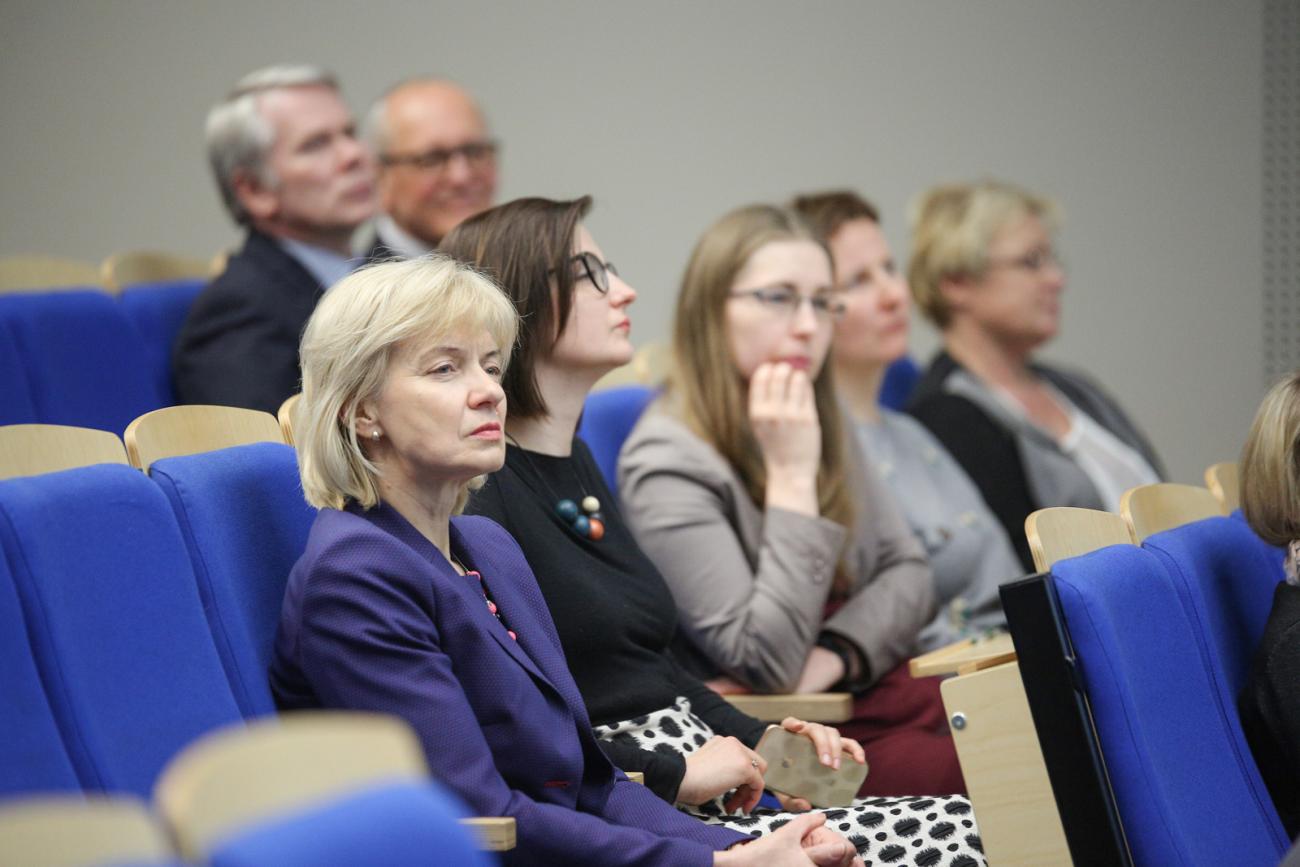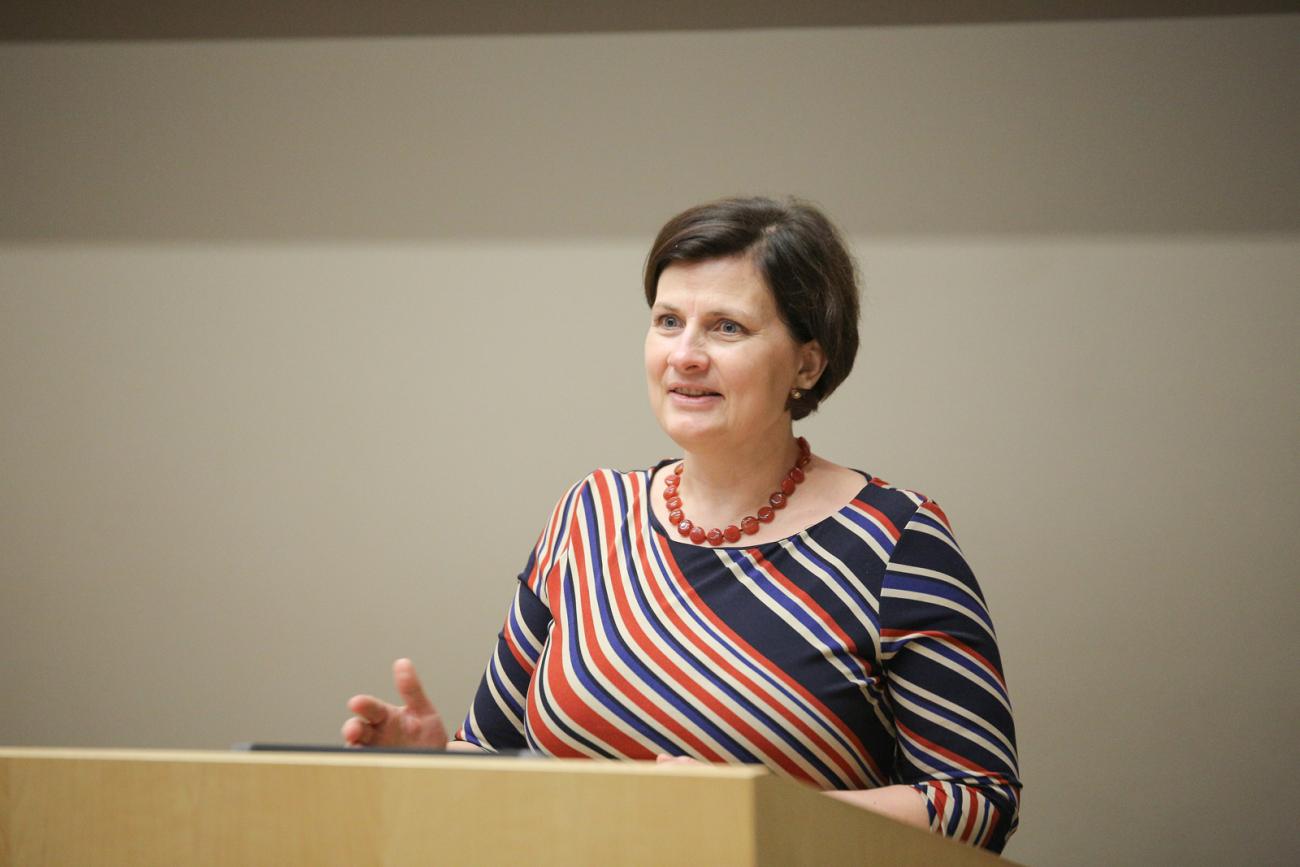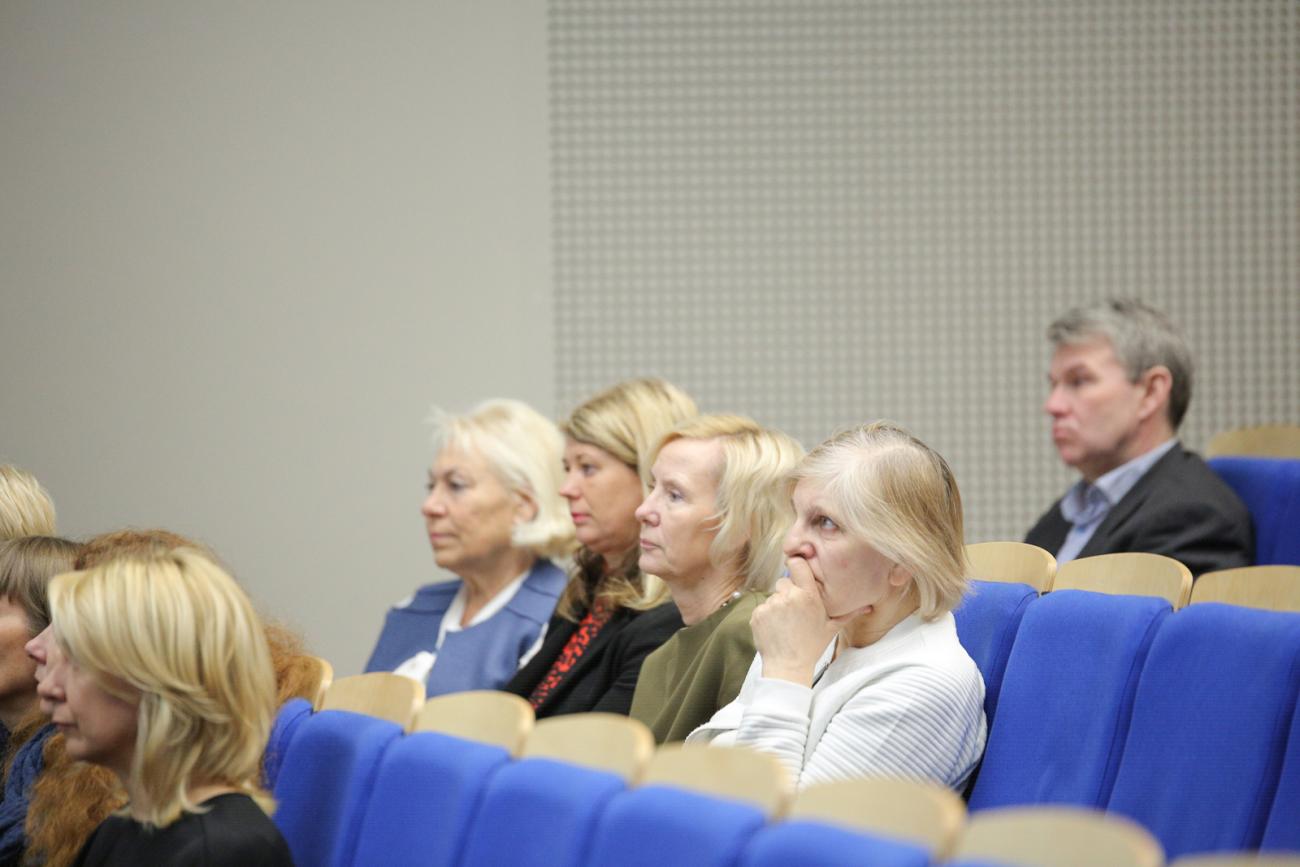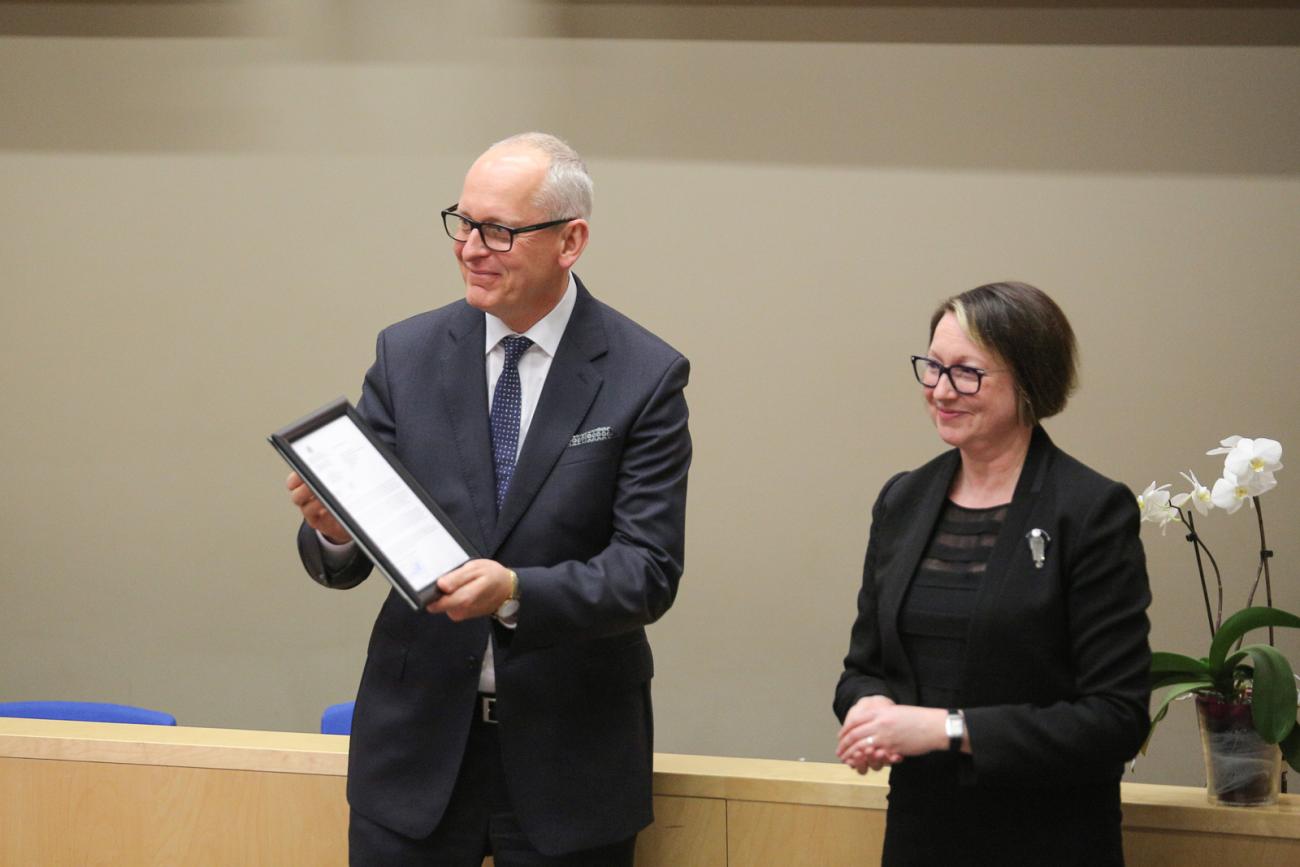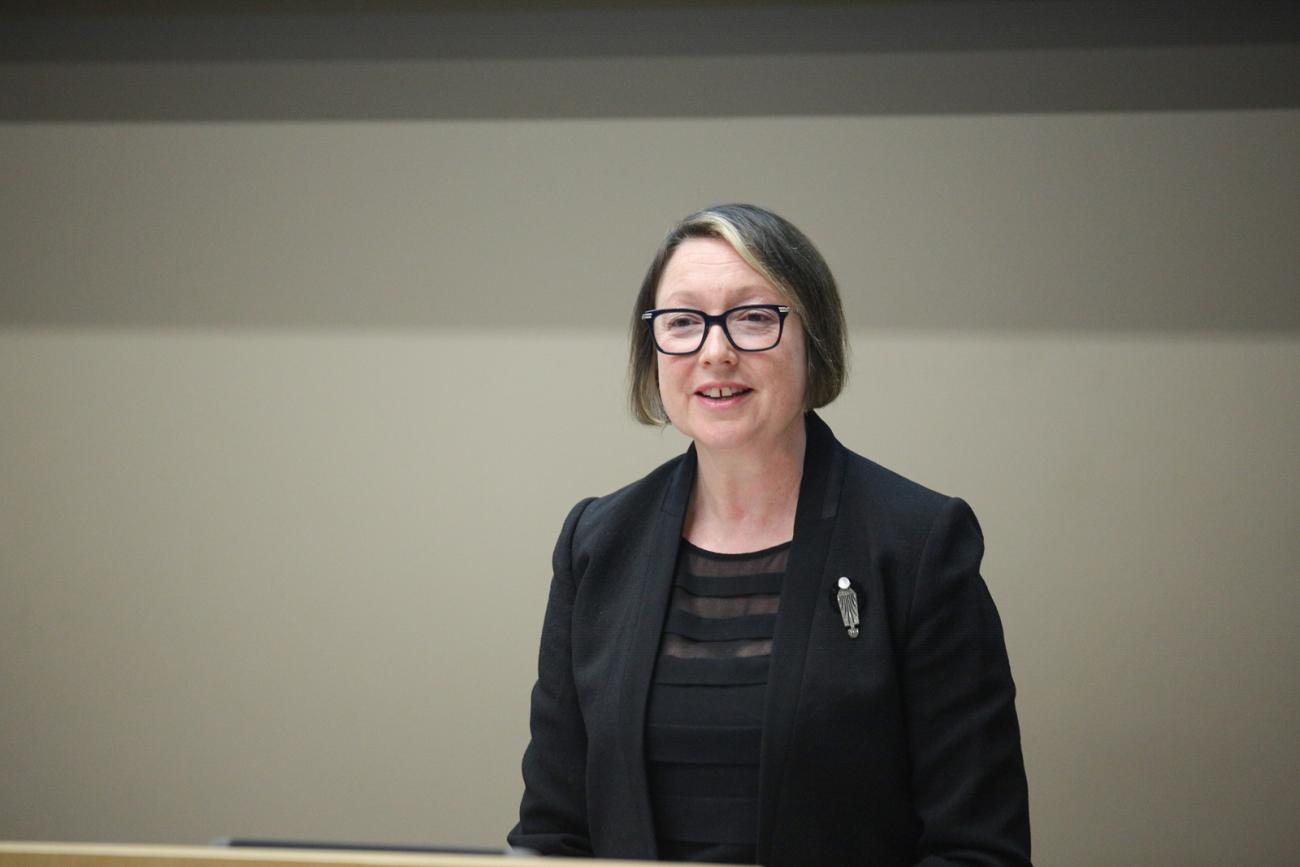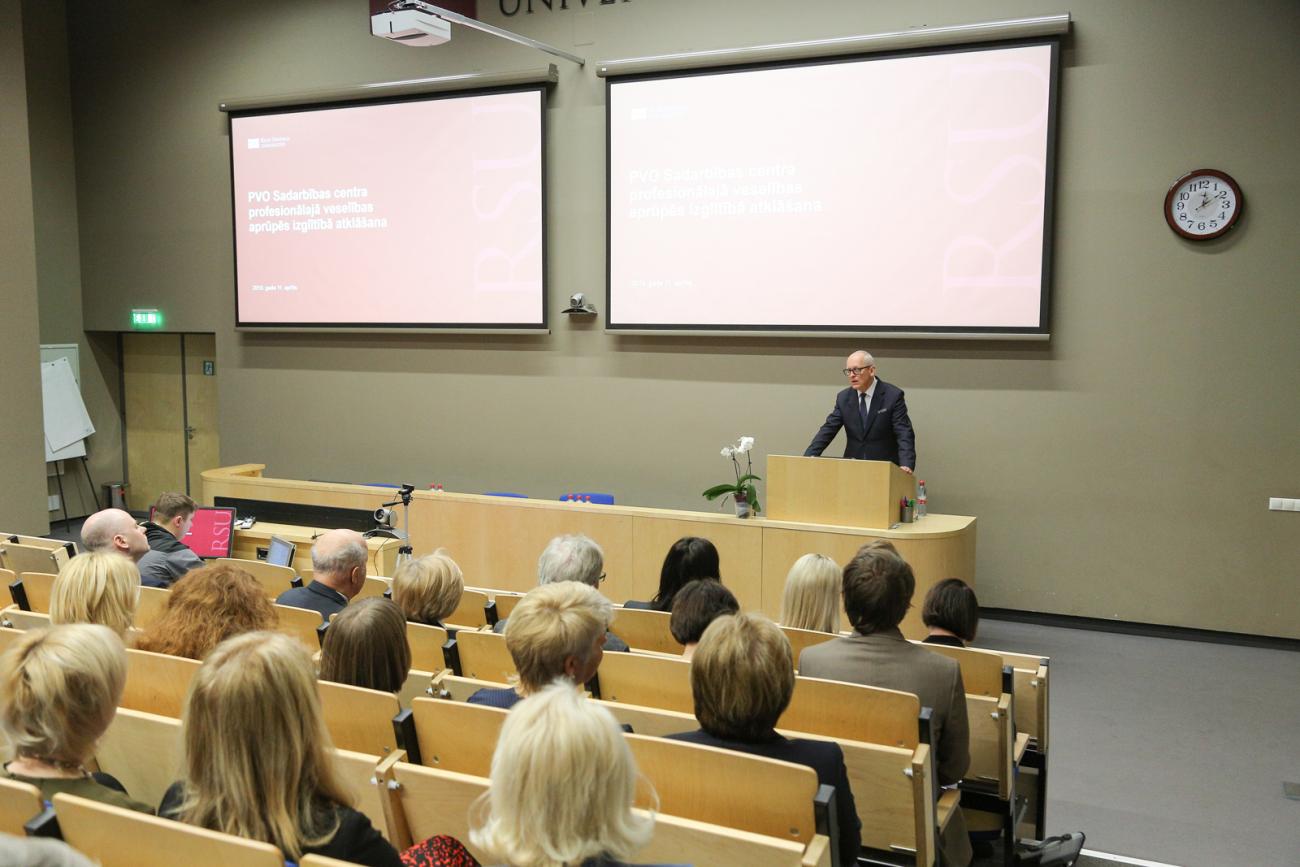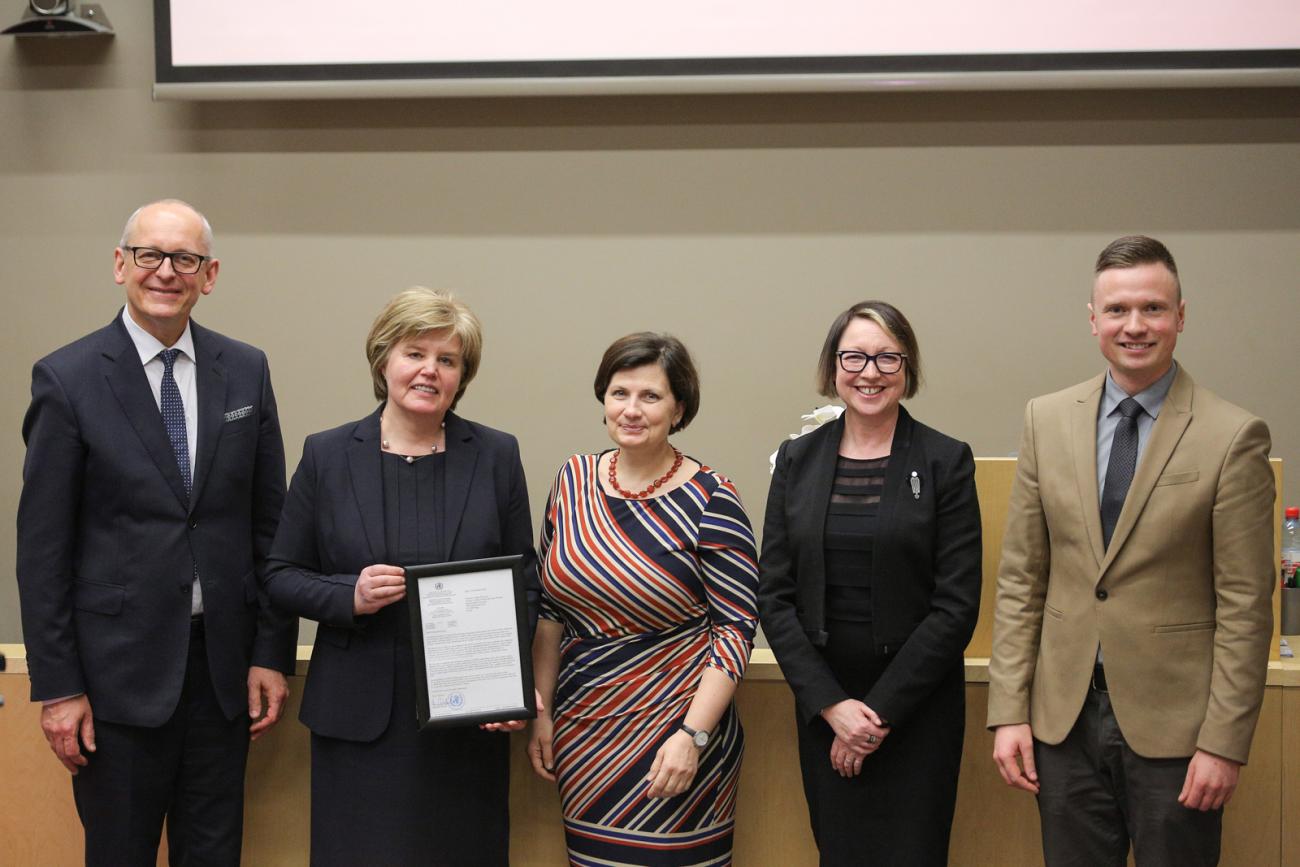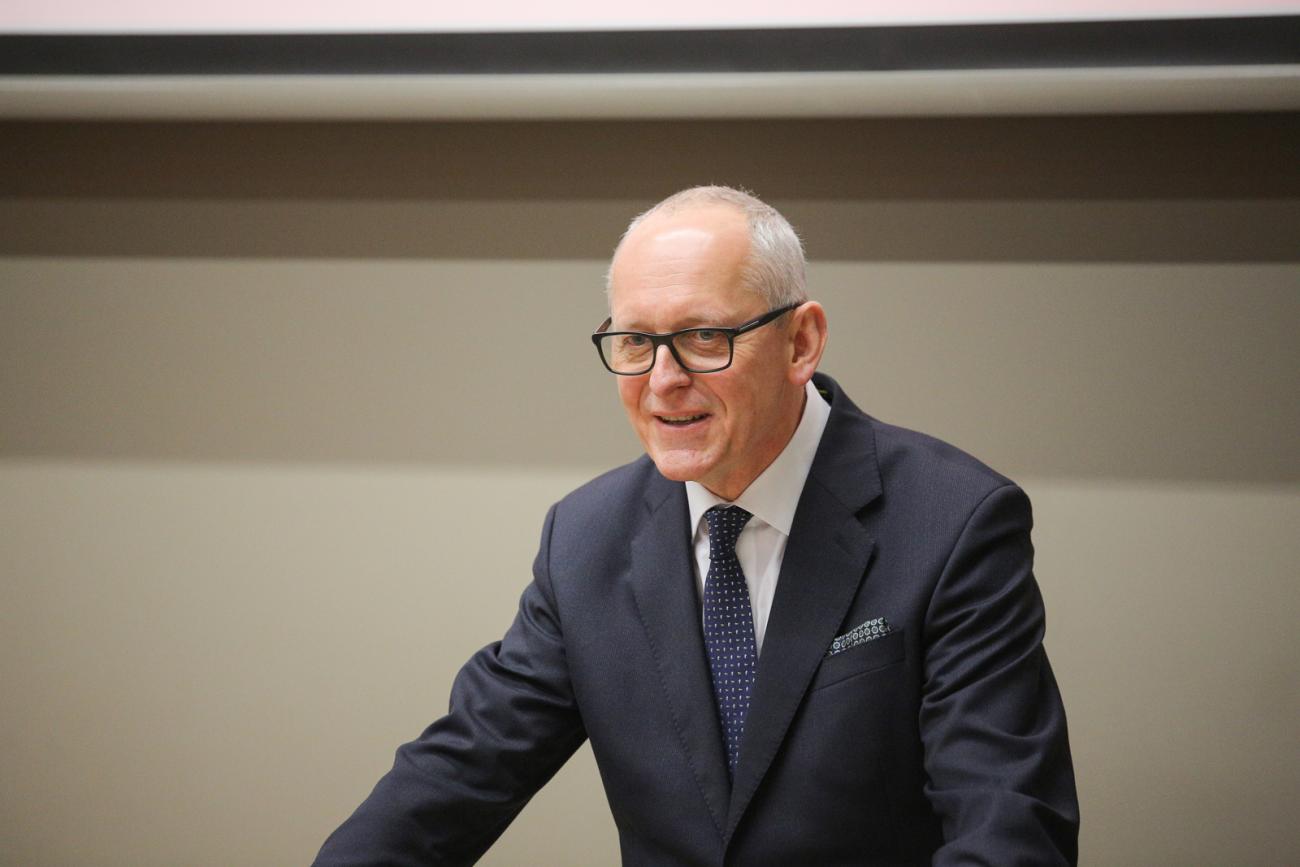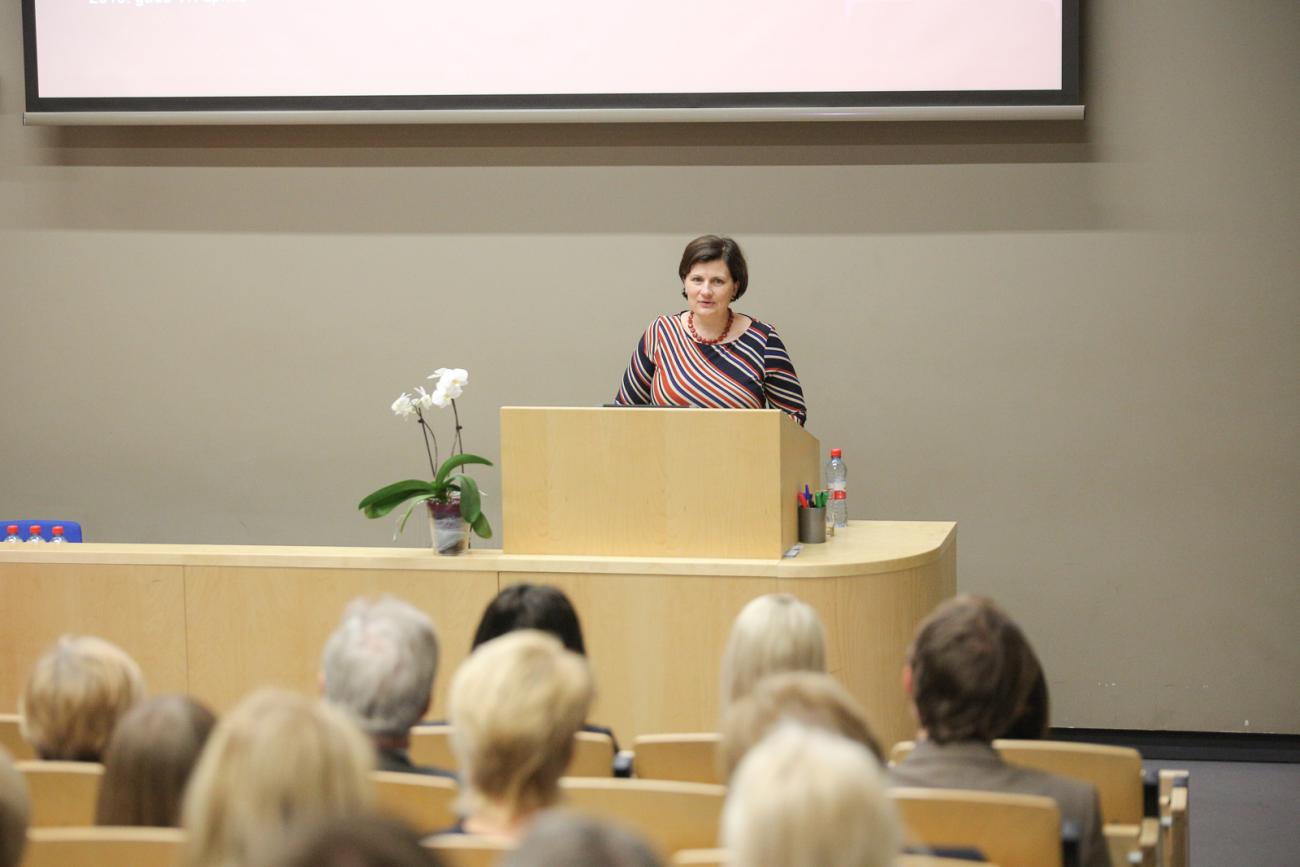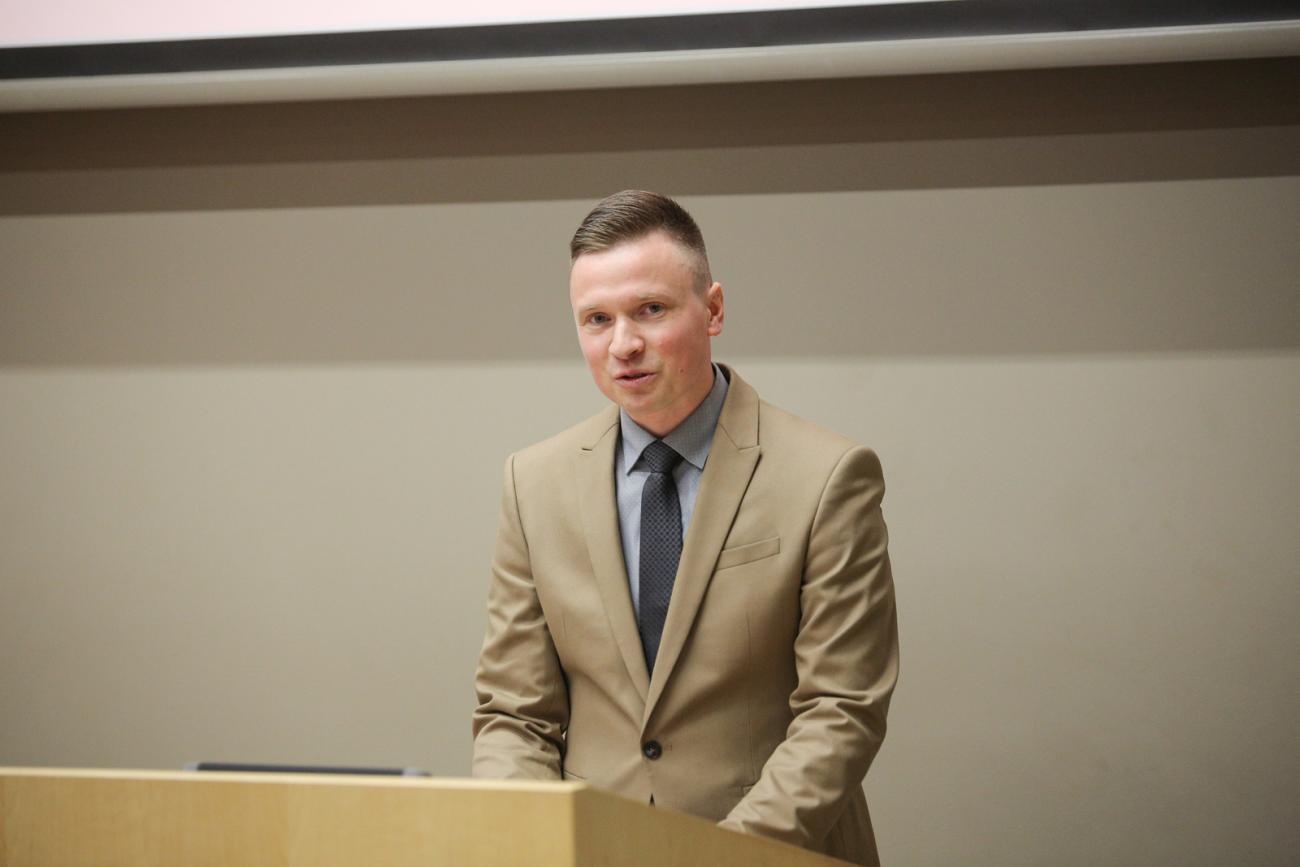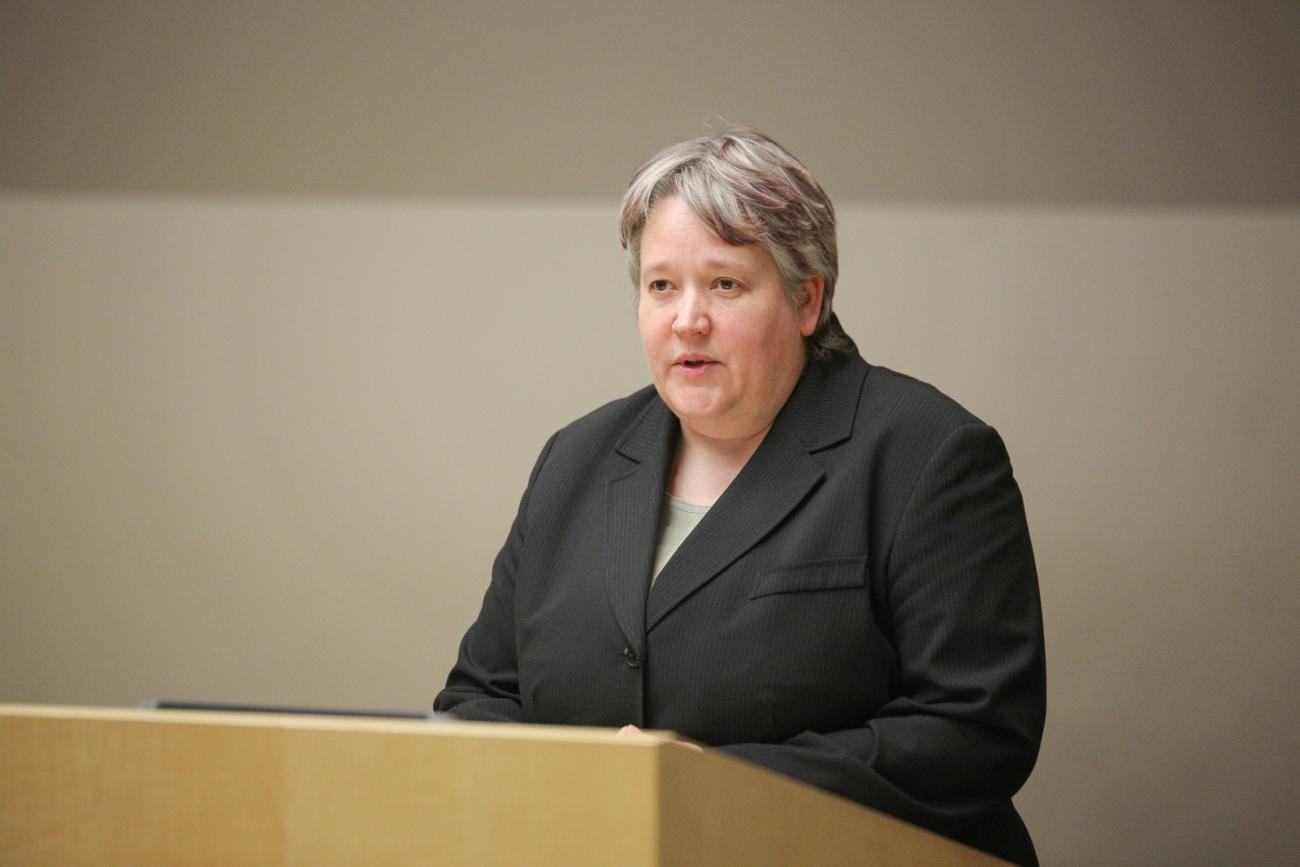RSU becomes a WHO Collaborating Centre
On 1 April a Collaborating Centre for Health Professional Education of the World Health Organisation (WHO) was launched at Rīga Stradiņš University (RSU). The functions of the centre were delegated to the Faculty of Public Health and Social Welfare.
The WHO Collaborating Centre will make the knowledge and experience accumulated by the RSU academic staff available on an international level. It will also develop research by engaging in various WHO projects in 53 countries. Additionally the centre will help foster the improvement of study programmes in other countries according to WHO guidelines.
During the opening address RSU rector Professor Aigars Pētersons characterised WHO as a long-term cooperation partner which will significantly contribute to the coordination of healthcare study programmes. EU guidelines are also binding in Latvia. The launch of the Collaborating Centre will transfer the experience of WHO into research and the development of study programmes. Patients will be the long-term beneficiaries of this collaboration. Professor Pētersons is convinced that RSU is not a random choice as it is an open European university with a distinctly international orientation which offers high quality study programmes, opportunities for research and a structured infrastructure.
Gabrielle Jacob, who is the Head of the WHO Regional Office for Europe, underlines that so far the cooperation between WHO and the RSU Faculty of Public Health and Social Welfare has been outstanding. She placed special emphasis on the engagement of RSU academic staff as experts in international programmes. Gabrielle added that WHO is currently undergoing major reforms to develop research, modern digital technologies and education. None of this would be possible without active collaboration with regional centres.
Ilze Viņķele, the Minister of Health, expressed satisfaction that Latvia has transformed from being a recipient country to a donor country which can now export skills and knowledge. The Minister emphasised that the centre would also benefit the national economy and expressed the hope that the centre would serve as a take-off point for both healthcare education and health policy in Latvia.
Professor Inga Millere, the Dean of the Faculty of Public Health and Social Welfare, recalled that the idea about establishing a collaborating centre emerged during Latvia's EU presidency in the first half of 2015. Participating in events during Latvia’s presidency opened up opportunities for the faculty to shape its international side and to integrate globally. While the idea of a centre was formed years ago WHO had to evaluate each candidate carefully, and it has taken a couple of years to make the centre possible.
Professor Millere has already consulted international healthcare professionals on the educational opportunities available to them. The faculty’s Vice-Dean, Toms Pulmanis, sees the opening of the centre as something that will challenge and provide new opportunities in the field of education.
In total there are over 800 WHO collaborating centres in 90 countries including 290 centres in 34 European countries. Great Britain, Italy, Germany, Russia and Switzerland have the highest number of centres. The WHO Collaborating Centre at RSU will participate in the international programmes of 53 countries in the region. The centre established at RSU is the second WHO collaborating centre in Latvia.
Related news
 RSU Research Week Opening Plenary Session highlights the interaction between medicine, technology, and behavioural scienceFor Students, For RSU Employees, Conferences, workshops, Research, International Cooperation, Traditional Events
RSU Research Week Opening Plenary Session highlights the interaction between medicine, technology, and behavioural scienceFor Students, For RSU Employees, Conferences, workshops, Research, International Cooperation, Traditional Events
